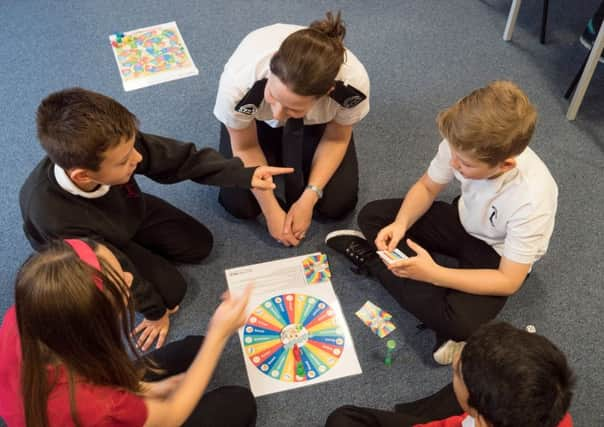Gilly Mendes Ferreira: Teach kids at school to be kind to animals '“ and break the cycle of cruelty


Sadly we saw a 44 per cent increase in the number of animals seized as a result of cruelty cases submitted to the Crown Office in 2017. The reasons range from neglect, unintentional cruelty and intentional cruelty.
Our free Prevention through Education programme reaches more than 275,000 primary school children annually and, through collaborative work with the University of Edinburgh, we know that our programme has a significant impact on children’s knowledge about animals, their welfare needs and on children’s beliefs that animals have feelings.
Advertisement
Hide AdAdvertisement
Hide AdHowever, given that we seized more animals last year than ever before, it is clear we need to do more to ensure the next generation understands the importance of being kind to them.


In order to tackle neglect and unintentional cruelty we believe it is essential to educate from early years through to adulthood, ensuring the methods we use are effective and meaningful, encouraging and promoting empathy and compassion towards all animals through game-based learning.
We recently formed Scotland’s Animal Welfare Education Forum as a way of working with other like-minded organisations that are also keen to change the future for animal welfare in Scotland. The forum includes Dogs Trust, Blue Cross, PDSA, Cats Protection, RSPB Scotland, Quality Meat Scotland, Royal Highland Education Trust, Edinburgh Dog & Cat Home, Paws for Progress, Edinburgh Zoo and Fostering Compassion.
One of our key goals is to put a collaborative voice behind campaigns, like having animal welfare education as a compulsory part of the Curriculum for Excellence. The topic of animal welfare and the methods used to teach it can link into a number of areas of the Scottish curriculum and ties in nicely with the four capacities, in particular encouraging responsible citizenship.
However, having the opportunity to deliver free animal welfare workshops in schools very much depends on whether the decision maker in that establishment understands the importance of animals in our society.
Making animal welfare a compulsory component of the curriculum and a subject in its own right would mean every young person would be encouraged to engage and would make a significant difference to human-animal interactions. In Singapore, animal welfare will soon be part of the Character and Citizenship Education curriculum for all primary and secondary students and we believe Scotland should be following this lead.
Through collaborative research with the University of Edinburgh, in general terms, if children were accepting of intentional animal cruelty this predicted that they had low levels of pet attachment, low levels of compassion, less humane and caring behaviours, negative attitudes and lower beliefs that animals have feelings.
It was also noted that adverse childhood experiences such as abuse, victimisation and bullying can play a pivotal role in the likelihood that an individual who has experienced this will engage in animal cruelty.
Advertisement
Hide AdAdvertisement
Hide AdTaking these facts into account, the Scottish SPCA has now launched a free Animal Guardians programme which will be offered initially in the Edinburgh City council region from the 1 May and is kindly being funded by the RS Macdonald Charitable Trust.
The aim is to break the cycle of cruelty and harm towards animals and people through promoting positive child-animal interactions. Practitioners will be encouraged to refer children who have been flagged as having the potential to commit animal cruelty, or have already been involved in an animal cruelty incident. We will work with referred children on a one-to-one basis in a fun and engaging way.
Although the programme will focus on primary-aged children, we are looking to offer workshops to secondary aged pupils in the form of electronic game design and development.
If these new programmes are deemed effective we will look to expand this service nationally. The programme will be evaluated by the University of Edinburgh to ensure the workshop methods are truly having a positive and significant effect.
Education is at the heart of what we do. Prevention through education is an essential element of our work rescuing abused, abandoned and injured animals across Scotland. By investing in our free education programmes we will help reduce animal cruelty in the future.
If you want to find out more about Animal Guardians or any of the preventative work that we are undertaking in Scotland, please visit www.scottishspca.org
Gilly Mendes Ferreira, head of education and policy, Scottish SPCA.